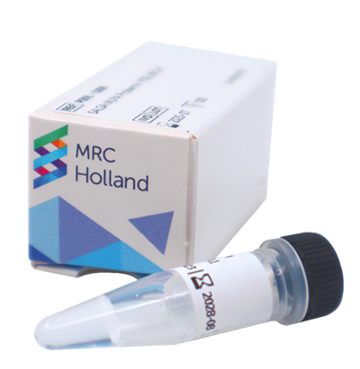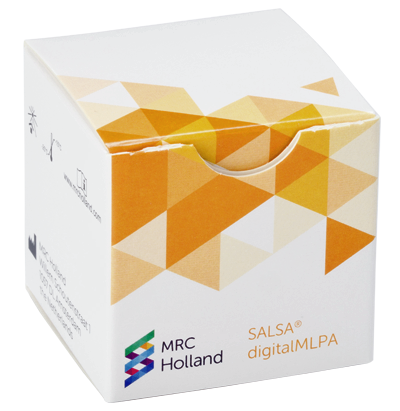The main genes in the DNA mismatch repair (MMR) system are MLH1, PMS2, MSH2 and MSH6. Heterodimers of proteins encoded by these genes (MLH1/PMS2 and MSH2/MSH6) repair and prevent DNA mutations. Defects in the cell’s MMR system may lead to the accumulation of mutations resulting in the initiation of cancer. Epigenetic silencing or loss of function mutations in the above-mentioned genes cause MMR deficiency and microsatellite instability (MSI). Heterozygous germline mutations in any of the MMR genes result in Lynch syndrome (LS, also known as hereditary nonpolyposis colorectal cancer, or HNPCC) - an autosomal dominant cancer predisposition condition. LS is characterised by an increased risk of colorectal cancer, endometrial cancer, gastric cancer, ovarian cancer and other cancers such as hepatobiliary tract, urinary tract, brain and skin. Genetic alterations in the MLH1 and MSH2 genes have been found in up to 90% of LS cases, whereas MSH6 and PMS2 gene alterations are less frequently detected. Around 1-3% of LS cases are explained by EPCAM deletions. Elimination of the EPCAM transcription termination signal results in transcription continuing into MSH2 and silencing of the MSH2 promoter by methylation (Kuiper et al. 2011, Ligtenberg et al. 2009, Niessen et al. 2009). More information on LS is available at https://www.ncbi.nlm.nih.gov/books/NBK1211/.
In sporadic MSI-positive colorectal and endometrial carcinomas the MLH1 promoter is methylated in 10-20% of cases resulting in the loss of MLH1 expression (Cunningham et al. 1998, Esteller et al. 1998, Herman et al. 1998, Kane et al. 1997, Simpkins et al. 1999). MLH1 promoter methylation testing is performed in order to differentiate between sporadic MSI and LS. The CpG sites in the C- and D- “Deng” regions of the MLH1 gene are of main interest (Deng et al. 1999). MLH1 promoter methylation analysis on tumor tissue can improve the selection of patients for LS genetic testing and thus provide substantial cost reductions (Perez-Carbonell et al. 2010). Of note, in recent years rare cases of constitutional MLH1 hypermethylation together with a somatic mutation in the functional allele have been reported in LS families (Goel et al. 2011, Morak et al. 2018, Pinto et al. 2018).
Promoter inactivation by methylation of MSH6 or PMS2 has not been reported according to our literature review in LS patients or described as a somatic cause in colorectal or endometrial tumours.
BRAF pathogenic variants, most commonly the p.V600E mutation, is another important molecular marker identified in ~15% of sporadic colorectal cancers (Bouzourene et al. 2010). These mutations have a strong association with MLH1 promoter methylation, and therefore BRAF mutation and MLH1 methylation tests are often performed concurrently. BRAF mutation is frequently present in sporadic colorectal cancer with methylated MLH1, but not in LS. Given the comparative rarity of BRAF mutation and MLH1 hypermethylation in LS tumours, the testing of those is done in tumour tissue of colon cancer cases to differentiate LS-associated cancer from more common sporadic cancers. BRAF pathogenic variants, however, are not common in sporadic endometrial cancers; thus, BRAF testing is not helpful in distinguishing endometrial cancers that are sporadic from those that are LS-related.






